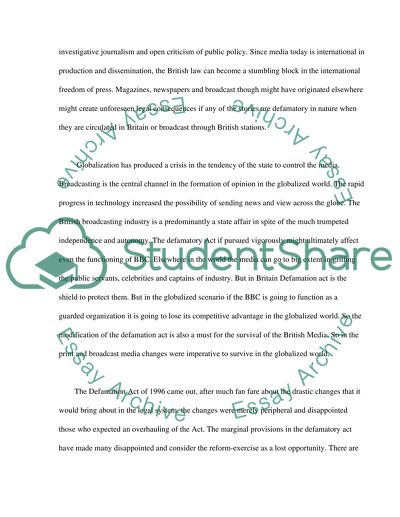Cite this document
(“Law of Defamation Essay Example | Topics and Well Written Essays - 1000 words”, n.d.)
Retrieved from https://studentshare.org/law/1532853-law-of-defamation
Retrieved from https://studentshare.org/law/1532853-law-of-defamation
(Law of Defamation Essay Example | Topics and Well Written Essays - 1000 Words)
https://studentshare.org/law/1532853-law-of-defamation.
https://studentshare.org/law/1532853-law-of-defamation.
“Law of Defamation Essay Example | Topics and Well Written Essays - 1000 Words”, n.d. https://studentshare.org/law/1532853-law-of-defamation.


